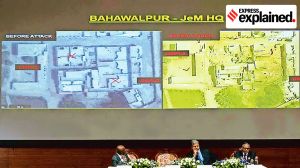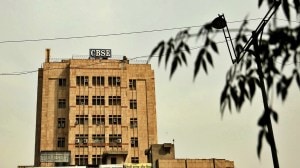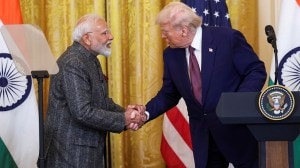Click here to follow Screen Digital on YouTube and stay updated with the latest from the world of cinema.
Jigra, My Brother Nikhil: When Bollywood showed sisters, too, can be protectors
On Raksha Bandha 2025 today, here's tipping our hats to two onscreen sisters who didn't want their brothers' protection, but stood like rocks between them and the world.
 Raksha Bandhan 2025: When Bollywood had sisters coming to rescue their brothers.
Raksha Bandhan 2025: When Bollywood had sisters coming to rescue their brothers.“Par maine kabhi nahi kahaa main sahi insaan hun, main bas Ankur ki behan hun.”
The trailer of Alia Bhatt-helmed Jigra concluded with a line which, as an older sister, gives me goosebumps. “I never claimed that I am a good human being. I am, simply, Ankur’s sister.” Described as an action thriller, the 2024 release, at its very core, is the story of a sister who would go to any lengths to save her brother who has ended up on death row for no fault of his own.
Right off the bat, Satya (Bhatt’s character) comes off as cold, clinical, and emotionless – survival tactics she adopted after witnessing her father’s suicide at a young age. Having learnt to fend for herself early on, Satya has no time for love or crushes or even friendships. All her emotions are only for one man – her baby brother Ankur (played by Vedang Raina) – and she’s ready to do anything to protect him, including travelling to a different country with little more than a backpack, and offering to slash her wrist on the off-chance that she would be allowed to see her sibling.
 Alia Bhatt as Satya in Jigra.
Alia Bhatt as Satya in Jigra.
The bond between siblings is a trope that Bollywood has relied on since the very beginning. “Phoolon ka taaro ka…” (Hare Rama Hare Krishna, 1971), “Bhaiya Mere Rakhi ke Bandhan ko Nibhana” (Chhoti Behan, 1959) and “Behna ne bhai ki Kalai pe” (Resham ki Dori, 1974) are brought out for airing every Raksha Bandhan.
Most of these songs/films have one theme in common: Brothers looking out for their sisters. Or sisters exhorting the brothers to be there for them. And who can blame them? Traditionally, that is the whole idea behind Raksha Bandhan anyway: brothers vowing to protect the sisters. And if cinema is a mirror of the society, will it be wrong to accuse Bollywood of toeing the line set by age-old traditions?
That’s why it’s refreshing when Jigra turns the trope on its head. “Koi kya pareshan karega mujhe, aap jo meri didi ho. (Who is going to trouble me when I have you as my older sister)”. Ankur is a death row convict when he says this line; and we, as the audience, are convinced he is going to survive. His sister won’t have it any other way. Jigra may be a rare movie of a sister taking the role of a protector but it is, mercifully, not the only one.
Twenty years ago, there was another film that explored these very dynamics but in a very different style. My Brother Nikhil is the story of a young gay man who is diagnosed with HIV in the early 1990s – a time when this was nothing less than a death warrant. The story of Nikhil (Sanjay Suri) is told by his loved ones: Parents, lover, former friends, one of the policemen who harassed him, and, most importantly, his sister.
 Juhi Chawla and Sanjay Suri in My Brother Nikhil (2005).
Juhi Chawla and Sanjay Suri in My Brother Nikhil (2005).
Unlike Jigra where the older sister-younger brother dynamics are more pronounced, with Ankur addressing Satya as “didi”, Nikhil and Anamika, or Anu (Juhi Chawla), are more like friends here. He sets her up on a date, she gets why he does not want to marry the “nice girl” their parents are keen on. But when Nikhil is diagnosed with AIDS, she takes on the role of the older sister — protecting and supporting him even when he is abandoned by their parents.
Anu is nothing like Jigra’s Satya. She is soft-spoken, playful, is given to hearty laughs, wears perfectly lined lipstick and dainty silver earrings, and blushes at the mention of her significant other – traits that Satya has no time or inclination for — but look closer and you will see how essentially they are the same people. While Satya protects Ankur from witnessing their father’s death, Anu stands as a shield between Nikhil and their father’s wrath. While Satya plans a mega jail break to help her brother escape the prison, Anu mobilises support to ensure Nikhil is released from the inhuman environment of the sanatorium he was condemned to.
When Satya fiercely declares “Jail ko bomb se uda dungi par accept nahi karungi”; there is Anu’s quiet determination when she calmly but firmly refuses her parents’ proposal of moving out of their city to escape humiliation, “main apne bhai ko hargiz nahi chhodungi”.
While Satya is feisty and Anu is soft, they are both fierce in their own ways when it comes to their younger brothers – both in a death row of two different kinds. When Satya and Ankur indulge in a game of basketball, it is reminiscent of Anu and Nikhil chasing each other on the beach near their Goa home. Amid all the frenzy, Satya keeps on going back to the memories of the childhood shared with her brother — the same way Anu did, almost two decades before her.
Anu may not explicitly state “tu mere protection mei hai. Main tujhe kuchh hone nahi dungi” like Satya, but by being his safe space, she becomes the first person Nikhil reaches out to after his HIV diagnosis. Knowing that even if she won’t understand the disease that Nikhil himself is trying to make sense of, she would understand him. And his conviction is right. All through, Anu is Nikhil’s rock. While Satya takes on an entire country, Anu takes on her own parents, telling Nikhil, “main tab ghar jaaungi jab tum saath chaloge.” While her parents were scared of losing reputation, her only worry was losing her brother – the person she was the closest to.
When Jigra’s Satya tries to touch her brother through a tiny gap in the glass wall separating them in the meeting room, My Brother Nikhil’s Anu holds her sibling’s hand as he lays in the death bed, perhaps hoping against hope that he survive a little longer.
In the end, following some heart-stopping, unrealistic action sequences, Satya manages to bring her brother home. Anu could not do so — sometimes the fight against a disease is bigger than the battle with an entire country – but she manages to do something that is no less a feat: Getting a hostile society to accept her brother, making her parents come round, and ensuring Nikhil gets dignity in death. Their parents not only welcome Nikhil back home, they also accept his gay partner, treating him like their own son.
That way, aren’t Jigra’s “vaddi ton vaddi koi vi fauj aawe tenu sang rakhna (Even if an entire army is after us, I will keep you close)” and My Brother Nikhil’s “Jo ghana ho fiza mei andhera… laenge hum savere lere liye (In the midst of a pitch-dark night, I will bring in sunlight for you)” conveying the same emotions?
In the final shot of Jigra, Satya turns around, stares into the camera and lets out a hint of a smile. If you look closely, you might find Anu smiling back.

Photos



- 01
- 02
- 03
- 04
- 05





























